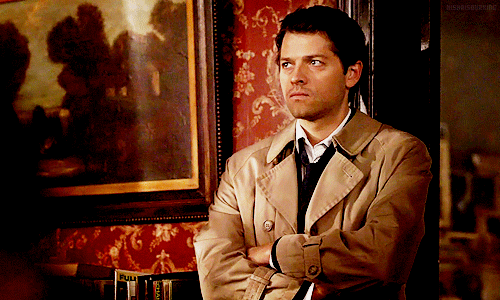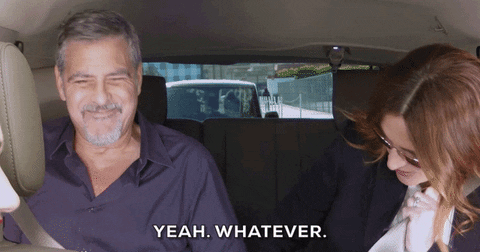
17 Oct Why Communication Skills Are Important to Fully Living Your Life
I’m about to drop a bombshell on you. There is a tremendous difference between talking and communicating? I know what you’re thinking, “What? My mouth is moving, isn’t it?” Sure, you could be babbling on and on about the sick new track The Weekend just dropped, but that doesn’t necessarily mean you’ve fine-tuned your communication skills.
So, why should you take communication seriously?
Effective communication is the foundation of all our relationships – whether that be with friends, colleagues, family, significant others, etc. Think about it. You’re out a bar, starting at a new school, or just out and about when you unexpectedly connect with a stranger.
Do you…
#1. Throw something at them?
#2. Play charades?
#3. Stare awkwardly at them all day?
Obviously, that’s a trick question. You begin getting to know them through communication.
By exercising good communication skills, you can express your feelings, ideas, and opinions – both personally and professionally. This is a vital part of what it means to be human. Thanks to technology, we can pretty much communicate with people from all corners of the earth, despite our location. Through dialogue, we can usher in a new movement, create unity among different cultures, religions, and people, and inspire change. It’s truly a powerful part of how we navigate through life.
Ready to improve your skills. Here’s how you can successfully tap into the art of communication.
Hit the Record Button
I’m not going to pretend this won’t make you cringe at first. However, by seeing and hearing yourself speaking, it’ll vastly refine the way you communicate. There’s a number of ways to approach this task. For example, make a recording of yourself during one of your meetings at work. Oftentimes, without even realizing it, we leave people with more questions than when they walked in the door because of the way we chose to speak about a particular topic or assignment.
As you either listen or watch the recording of yourself, you’ll be able to identify where you may be struggling and what you can improve upon. Did you use a lot of fluff words, like “um?” Did you provide clear and meaningful answers? Were you easy to understand? Did the point you were trying to articulate make sense?
This exercise is the same one professional athletes and artists use to measure their performance and perfect their craft. So, if you think it’s a “dumb” idea, just remember your favorite NFL players use it after every game to improve upon their success.
Communication Isn’t Just Verbal

That’s right; you need to also need to practice your nonverbal communication. Physical cues, such as our facial expression or body language, are also an important part of how we portray ourselves and in return, how others perceive us. Like it or not, you can convey a thought or feeling using the perfect string of words, but if your tone of voice is screaming apathy and your body language is unfriendly, then the actual words you use don’t carry the same weight.
Polishing up your nonverbal presentation is a key piece of slaying your communication game. Here’s a good example to chew on: let’s say you’re at a job interview with your dream employer. If you refuse to make eye contact, sit with your arms tightly crossed, fidget, or slouch, I can assure you that your resume will be embarking on a one-way trip to the trash bin. Bummer.
Don’t want to end up having your resume recycled, just so another candidate can use it to document their experience and steal your dream job? Well, then you need to appear open, approachable, and confident when you speak. It’ll lend to a more enjoyable and productive conversation for all parties involved.
Remember, You Have Ears Too
A majority of people really enjoy the sound of their own voice, and they completely forget the importance of listening. When you talk less and actively listen, it encourages shared dialogue and allows other people to open up as well. Whether it’s your friend, loved one, or coworker, people want to know that you’re really hearing what they have to say. It solidifies bonds and shows you care.
Listening isn’t as easy as it sounds. Sometimes we’re preoccupied with what we want to say next or our bellies are rumbling and are focused on grabbing some grub. However, staying present and truly opening your ears to what another person is saying, can really bump your communication skills to the next level. Especially when you practice asking follow-up questions and participating in the dialogue on a deeper level than “uh-huh” or “yeah.”
On a similar note, remember to ask questions. Instead of just word vomiting your drama or point of view, ask others how they’re doing or what’s going on in their world. Maybe you don’t want to hear their opinion on a particular topic, but to make someone feel valued and respected, it’s important to ask for their thoughts and two cents on the subject too.

#RealTalk: we’re all human. We complain. HOWEVER, if you’re constantly exuding negativity and sound like Joffrey Baratheon from Game of Thrones, no one is going to like you or want to be around you. In the wise words of my mother, “If you don’t have anything nice to say, don’t say anything at all.”
Groups That Communicate Together, Slay Together
Yassss…group activities! A fun (and effective) way to give your communication skills a much-needed facelift is to partake in some group exercises. Communication isn’t just about speaking the right words. There’s no pre-written life script to follow here. Real communication requires improvisation.
There’s a whole slew of exercises you can find online to play with friends or use with coworkers. If you’re the board-games type, you can even opt to play Catan or Settlers, which requires strong negotiation and communication skills if you want to dominate.
It’s All About Timing
Just like standup comedians, effective communicators understand the importance of timing. Feeling the vibe your audience or other people are giving off will clue you in as to what’s needed. For instance, does your coworker look frazzled after slaving over a client presentation? Give them props for the hard work. Likewise, if your bestie seems upset, be sympathetic, ask them what’s going on, and help cheer them up!
As you improve upon your communication skills, your confidence will begin to blossom. It may seem like a run-of-the-mill topic, but the ability to communicate our dreams, opinions, and thoughts has been an important part of humanity’s growth, and even survival. When you exhibit great communication skills, it’ll not only have a positive impact on your career success, but it’ll help improve all aspects of your life.
Being Emotionally Aware

Often understated, but just as pivotal to the communication process is being aware of people’s emotions – including your own – and actively managing those emotions. When you’re at the office, for example, not every task or project is tackled from a purely logical standpoint. Because, let’s face it, as humans, we can be messy and emotional.
The whole, “leave your emotions at home” mantra is certainly not a philosophy to live by. Am I suggesting you drive to work, stomp inside with determination, and smash anything that crosses your path? Hint: No, I’m not. But, with emotional intelligence comes the ability to recognize emotions, both negative and positive, understand what’s triggering them, and respond to them in the appropriate manner. The principle behind emotional intelligence is to master your own emotions while showing empathy and understanding towards others as well.
Getting Your Message Across
It’s one thing to learn how to actively listen and receive messages, but it’s another thing entirely to effectively convey what you’re trying to say. For example, you want to avoid saying the first thing that comes to mind. A.k.a. yelling, “MARSHMALLOW” at someone because they’re wearing a puffy white coat, is probably not the best way to greet them.
In any situation, you want to pay close attention to your words and how you choose to say them. It helps to focus on the main idea of what you’re trying to communicate. When you take into consideration how your message may be received by another person or audience, you’ll be able to tailor what you say so it really resonates with other people.
Clear communication will help you avoid unwanted misunderstandings, like hurting someone’s feelings or creating a potential conflict when that was never your intent. Remember, people come from different backgrounds, cultures, religions, etc. You need to be mindful of these things when you speak, as you could seriously offend someone without realizing it.
Cue the Laughter
Who doesn’t enjoy making someone laugh? Laughing kicks up our endorphins, which help the body alleviate stress and feel good. You’ll find a majority of people are naturally drawn to those that can give them a good chuckle. And, do you blame them? Humor is a great way to lower barriers, break the ice, and build relationships. However, make sure to pepper some laughs in the conversation where it’s appropriate. The last thing you want is to botch a big sales deal or upset a loved one because you failed to act professionally or consider the feelings of others.
Diffuse the Tension
Effective communicators understand that by nature, some scenarios are just plain stressful. Whether you have to speak with your boss about an office bully, share your feelings with a loved one, or talk to a friend about an uncomfortable topic, don’t let stress act as a barrier to fully relaying the message you’re trying to get across. By simply remaining calm and focused on the task at hand, you’ll be able to block out anxious or negative feelings and have a productive conversation.
Use Words to Support Equality

It’s 2019…everyone deserves to be treated and spoken to equally. While you would choose different words when communicating with a child versus an adult, you should always aim to speak to others as your equal. No one wants to be patronized.
Use your voice to spread positivity, awareness, or whatever message you feel passionate about. The point is to use words in the spirit of kindness, not to inspire hate, break someone’s trust, or talk unpleasantly about someone behind their back. We can use communication to create a better future for everyone.
Whether you’re giving a keynote presentation, connecting with friends and loved ones, attending a networking event, or building relationships with the clients you work with, when you invest the time in practicing how you communicate, it’ll vastly transform your conversations and ensure you come out on top!


No Comments